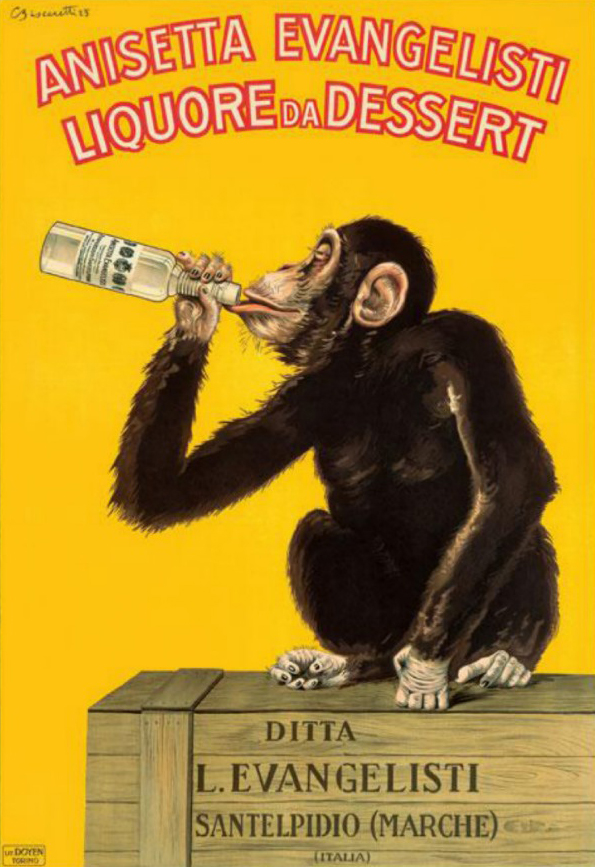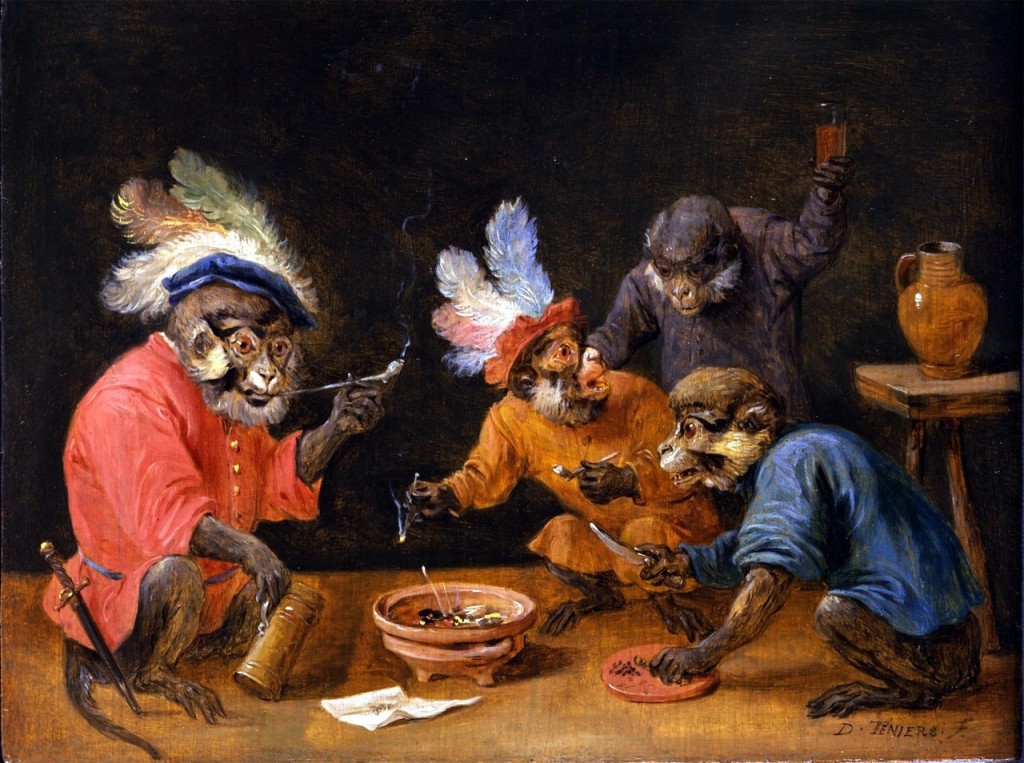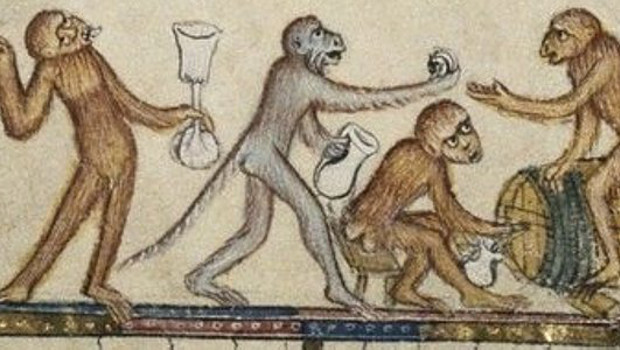Primates. We evolved from them, we share a huge percentage of genetic similarity with them, and we like to drink alcohol like them. You read that right — primates like to drink alcohol.
According to research done by Berkeley professor Robert Dudley, primates have evolved to search out ripe fruits high in ethanol. There are several reasons for this: For one, ripe fruits tend to be higher in sugar, which gives primates an energy boost while also providing them with a pleasurable eating experience. For another reason, alcohol is high in calories, and when meals are few and far between, going for foods high in caloric value is a must.

Photo Courtesy of allposters.com
Even the way we act around food and drink is similar to apes in the rain forests. Next time you go out with your friends, observe the way your friends eat. Do they smell the food? Pick it up and feel the texture? Stare at it intensely?
Primates in the jungle exhibit this exact behavior when searching for fruit ripe enough to eat. Ripeness is indicative of ethanol content, so primates spend some time assessing their fruit options before settling down with their choice.

Painting by David Teniers the Younge
In fact, we have evolved to drink alcohol to the point that we have genes to metabolize alcohol. Metabolization of alcohol is carried out primarily by alcohol dehydrogenase (ADH) and acetaldehyde dehydrogenase (ALDH) in the liver.
This is why we can tolerate alcohol to the point where even several drinks won’t get us drunk. Those with fast-acting ALDH are more likely to be alcoholics, while those with slow-acting ALDH have difficulty tolerating alcohol at all.
#SpoonTip: East Asians have characteristically slow-acting ALDH, a genetic-based variation that arose around the same time as intense rice cultivation in Asia.

Painting by Ferdinand van Kessel
The fact that our bodies have evolved to metabolize alcohol results in another interesting consequence: A little alcohol is better for our bodies than none at all. This is called a nonlinear dose response, in which risk of cardiovascular disease and overall mortality is reduced with low levels of alcohol consumption. We’re not saying you should get drunk daily, but a little bit of alcohol here and there actually does some good.

Photo courtesy of bodleian.ox.ac.uk
Next time you’re shamed for wanting to drink, remind them that not only are we hardwired to consume alcohol, but it’s actually good for us. So, enjoy that martini; after all, it’s what we’ve evolved to do.


